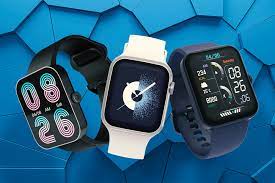In a groundbreaking study, researchers have found that smartwatches hold the potential to not only track physical health metrics but also provide valuable insights into symptoms of depression, offering a promising avenue for more personalized mental health treatment.
The study delved into precision medicine, led by Joshua Curtiss, Assistant Professor of Applied Psychology at Northeastern University, US, aiming to revolutionize how clinicians understand and address depression in individual patients.
Published in the esteemed New England Journal of Medicine, the study analyzed data from anonymized patients at Massachusetts General Hospital (MGH) who wore the Empatica E3 wristband. This wearable device tracked physiological indicators such as sleep patterns, movement, heart rate variability, and acceleration.
According to Curtiss, alterations in sleep patterns, physical activity levels, and social interactions are often indicative of depression symptoms. By harnessing wearable technology, clinicians gain real-time access to data that can shed light on these nuanced aspects of mental health.
For instance, fluctuations in sleep duration—either excessive or insufficient—can serve as red flags for depression. Similarly, decreased physical activity and social isolation are common symptoms detected through wearable devices.
Curtiss emphasized that passive sensor data offers clinicians a valuable tool for gaining insights that might go unnoticed. While this data does not replace clinical judgment, it complements it by providing a more comprehensive understanding of a patient’s condition.
By integrating sensor data with patient-reported symptoms and clinical assessments, clinicians can better tailor treatment plans to address each individual’s unique needs. For example, if the data indicates decreased physical activity, clinicians can initiate discussions with patients about potential underlying causes such as fatigue or anhedonia.
Importantly, Curtiss noted that while patient accounts remain crucial, they can sometimes be unreliable due to forgetfulness or reluctance to report symptoms accurately. Wearable technology helps bridge this gap by providing objective, real-time data that enhances the clinical picture.
The study underscores the transformative potential of smartwatches in mental health care, offering a more nuanced understanding of depression symptoms and paving the way for more personalized and effective treatment approaches.
Digital Content Associate | Research Analyst | Research Writer | Project Management and M&E Expert










